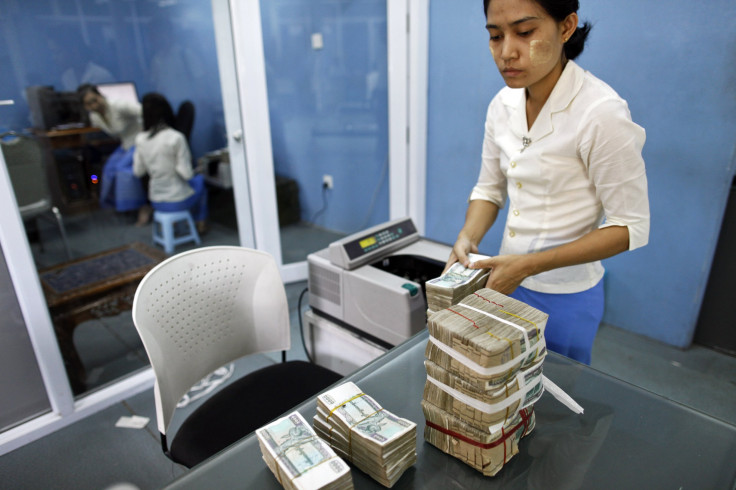Myanmar's Yangon Stock Exchange (YSE) On Track For 2015 Launch

Unlike construction of its new Hanthawaddy Airport, Myanmar’s first stock exchange in more than 50 years, the Yangon Stock Exchange (YSE), is mostly on track for the planned 2015 launch, despite a few major obstacles.
The YSE is set to open October 2015, after the government passed the Securities Exchange Law last September. Japan’s Tokyo Stock Exchange (TSE) and Daiwa Securities Group, a Japanese investment company, are tasked with establishing the nation's first equities bourse since the Southeast Asian country was taken over by a military regime in 1962, the Burmese newspaper Irrawaddy reported on Monday.
Daiwa, in partnership with the state-owned Myanmar Economic Bank, in 1996 established the Myanmar Securities Exchange Center (MSEC), which traded stocks in two companies and was largely ignored. The citizens of Myanmar traditionally traded in gold, U.S. dollars, real estate and used cars, but the YSE will be able to provide an alternative as the country’s economy continues to expand rapidly.
The exchange will be established with 32 billion kyat ($32 million) in investment, with the TSE and Daiwa holding 49 percent of the stake. The government hopes that companies will invest the funds they raise by listing on the exchange in a variety of sectors including services, banking, agriculture, hotels and tourism, and further spur Myanmar’s economic growth.
But trading would be difficult without better communication, as the majority of the population of the impoverished country is without electricity, let alone access to a phone or the Internet.
“We will need constant access to up-to-date information about stock shares, but how can we have that without better communications?” said U Ye Min Oo, the managing director of Asia Green Development Bank (AGD), a local company that is considering going public on the new exchange, according to the Irrawaddy.
Myanmar’s telecom situation could improve dramatically in the coming year, as the foreign firms Telenor and Ooredoo have finally received official telecom licenses, more than half a year after winning the tenders. Both companies are expected to quickly roll out telecom networks and connect more of the country.
Daiwa is proceeding cautiously with plans to list just 10 companies at the launch of the YSE, which would already be an impressive feat, considering that years after launching their own exchanges, Myanmar’s neighbors in Southeast Asia, Laos and Cambodia, still only have just three domestically listed companies between both countries.
“It won’t be easy to develop a stock market right away,” said U Thet Htun Oo, the senior manager of the MSEC, according to the Irrawaddy. “First, we need to achieve economic stability and reach a certain level of development. Also, the private sector has to improve, and exact laws and regulations will be required.”
Aside from insufficient telecom connections, most Myanmar companies have deficient management and accounting systems, and lack transparency and adequately trained staff. Illegal practices such as fraud and tax evasion will also present considerable difficulties for the new exchange, but conditions are expected to improve after the first few years, according to U Thet Htun Oo.
© Copyright IBTimes 2024. All rights reserved.











